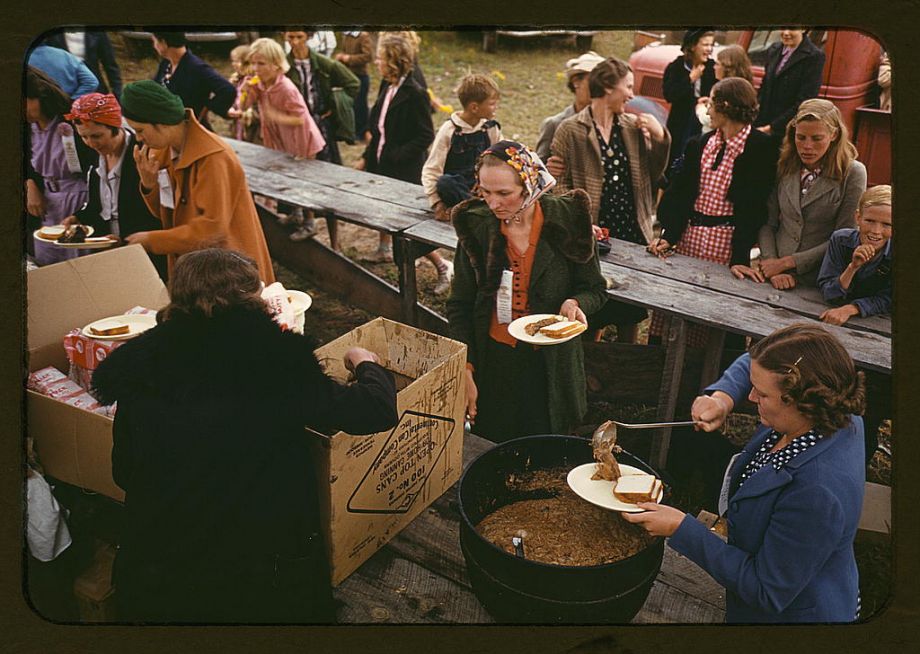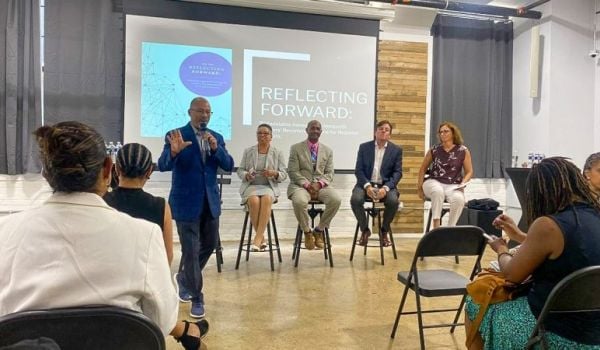People are not always what they seem. I knew this before a guest with a solemn smile repeated it to me at a recent Sunday Night Soup Kitchen on Penn’s campus. The guest, a regular attendee, had endured a devastating divorce and now was battling depression, but had a degree from an acclaimed university. It was unusual, someone with a college degree attending soup kitchen, but not out of place. As a director of Sunday Night Soup Kitchen now for two years, I have come to realize that many of our guests are not the homeless but the working poor. This places Sunday Night Soup Kitchen amidst the roaring controversy that has surrounded food aid since 1976, when conservative politicians, including Ronald Reagan, labeled the program “expensive and abused.” The notion that food and monetary benefits dissuade the poor from working and created sustained dependency on the government and third sector organizations is embedded in American ideology; we are the pull-yourself-up-by-the-boot-straps land of ever-growing opportunity, at least in theory.
On the ground, the do-it-yourself ideology has fallen by the wayside, at least when it comes to hunger and food security. A recent New York Times article noted the decreased stigma attached to food stamps, now called the Supplemental Nutrition Assistance Program (SNAP), and the increased participation of working Americans in this program. This trend is duly noted in Department of Agriculture statistics: 47% of families receiving food stamps in 2008 were working class, in contrast to 26% of the same population in the mid-1990s. Even Americorps volunteers, recent college grads, are food stamp beneficiaries.
This trend – the working class increasingly taking advantage of non-monetary aid – means that the volunteers and guests at Sunday Night Soup Kitchen are not as different as one might initially suspect. I struggled for some time to define my friendship with people like Will, a veteran in his forties with an apartment and job but also the lean look of a street-wise alley cat. I go to Will for advice on my career path (no decision as of yet) or the problem of my dorm room’s thin walls and look forward to his stories on a lifetime of adventure. He grew up only recently, Will tells me, laughing. Our friendship is a fusion of minds, not inhibited by race, class, or gender.
But Sunday Night Soup Kitchen is not the incendiary meeting place where revolutionary students and the noble working class discuss the potential for an egalitarian society, nor it is a temporary haven to weather the current global recession. Working class participation in food aid programs, such as this soup kitchen, is solely the unglamorous but long expected (at least by certain theorists) byproduct of neoliberal economic theories, the current stronghold of American individualism. Adopted on a global scale in the early 1980s, neoliberal theorists and supporters, such as Margaret Thatcher and Deng Xiaoping, advocate enhanced individual and corporate freedoms and minimal public sector involvement in the market economy. David Harvey, City University of New York professor, reveals the onerous results of neoliberal policy for the middle and lower classes in his book, A Brief History of Neoliberalism, writing, “…the neoliberal turn is in some way and to some degree associated with the restoration or reconstruction of the power of economic elites” (19). In sum, corporations accrued freedom and political influence at the expense of labor and welfare programs were scaled back.
Economic theories, even when promoted by the acclaimed University of Chicago professor, the late Milton Friedman, are not always accurate portraits of reality. Signing up for SNAP or frequenting soup kitchens is not a sign of self-efficacy or even a direct result of the current economic recession but a prescribed response to a hostile economic environment. Individuals are enmeshed in a socioeconomic fabric that dictates their decisions. At least Sunday Night Soup Kitchen and SNAP still exist. Juxtaposing contemporary economic policy with real life information mandates awareness of socioeconomic trends in our society but also an ability to deconstruct their causes and implications.
















